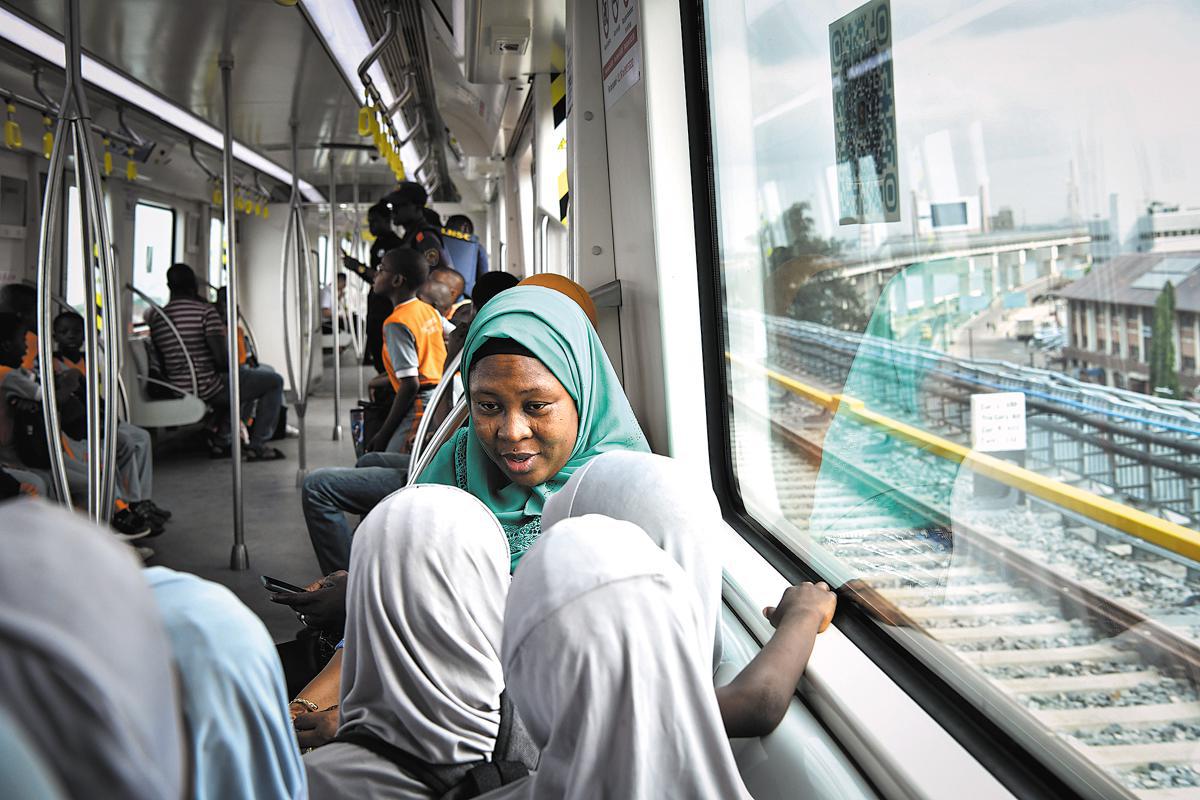Africa's green transition gets fresh vitality
BRI injects momentum in continent's sustainable growth goals, experts say


Through the provision of electric vehicles, modernization of public transport, development of energy infrastructure and capacity building, the Belt and Road Initiative is steadily contributing to Africa's sustainable growth ambitions and climate change goals.
Wang Jinjie, research assistant professor at the Institute of South-South Cooperation and Development at Peking University, said a recent study that she participated in, focusing on Ethiopia, Nigeria and Egypt, indicated that China's involvement through investment, trade and knowledge transfer is accelerating Africa's green transition.
"The model between China and Africa is not about import and export. That's only the starting point," she said, noting that the long-term focus that is already unfolding is manufacturing, local capacity building and job creation.
Wang said Ethiopia is already experiencing a high uptake of electric vehicles, offering local communities within the capital Addis Ababa a clean public transportation.
The uptake has been facilitated by the ban on the import of internal combustion engine vehicles in February last year in the country, a move that, Wang said, demonstrates how government policy can rapidly shape a new industry.
Within six months of the policy's introduction, more than 10,000 new electric vehicles were imported of which over 80 percent were Chinese brands, indicating how strategic intervention can accelerate sustainable mobility transitions in the continent.
She said Egypt is a promising environment for electric vehicle development, largely due to its commitment to infrastructure development.
Additionally, the establishment of automotive industrial zones such as the Suez Canal Economic Zone, has created a concentration of business ecosystem that fosters manufacturing, supply chain efficiency and technological collaboration.
In Nigeria, she said, while public interest in electric vehicles is growing significantly, lack of policy support and insufficient charging infrastructure remains a key challenge for its green transition cooperation with China.
Wang said China's new energy vehicle cooperation with Africa presents a strategic blue ocean opportunity, especially focusing on Africa's young population — which is the continent's powerful asset, as well as its vast natural resources.
She said the opportunity hinges on aligning technology transfer, capacity building and regulator facilitation to unlock long-term sustainable growth. This is in addition to the development of good infrastructure to facilitate better green transition.
Wang suggested the need for workforce development, noting that the green economy demands new skills and vocational education systems that currently don't exist at scale in many African countries.
Infrastructure gaps
She said infrastructure gaps should also be addressed alongside the electric vehicles rollout in Africa, adding that policy consistency and stability will be key for strategic planning.
Emmanuel Matambo, research director of the Center for Africa-China Studies at the University of Johannesburg, applauded China's commitment to investing in Africa's green energy.
China partners with 40 African countries on solar, wind, hydropower and biomass projects — a partnership that has resulted in 120 gigawatts of new power and 66,000 kilometers of grid lines, according to the Institute for Security Studies, a pan-African policy research institute.
Additionally, China has committed to abandon coal investments overseas.
He added that the small BRI projects that China is currently focusing on emphasize clean and prudent projects.
Matambo said China-backed institutions such as the Luban workshops are equipping African youth with technical skills that are needed for Africa's green transition.
The skills development aligns with the African Union's Agenda 2063 and its Green Recovery Action Plan, which emphasizes sustainable development driven by Africans themselves.
edithmutethya@chinadaily.com.cn
































